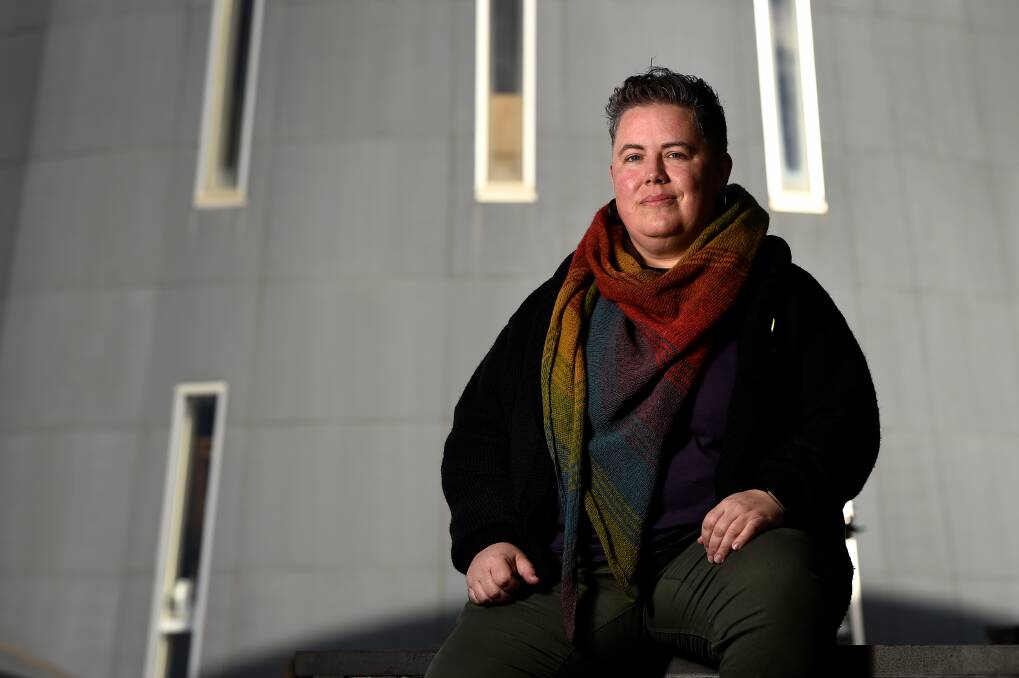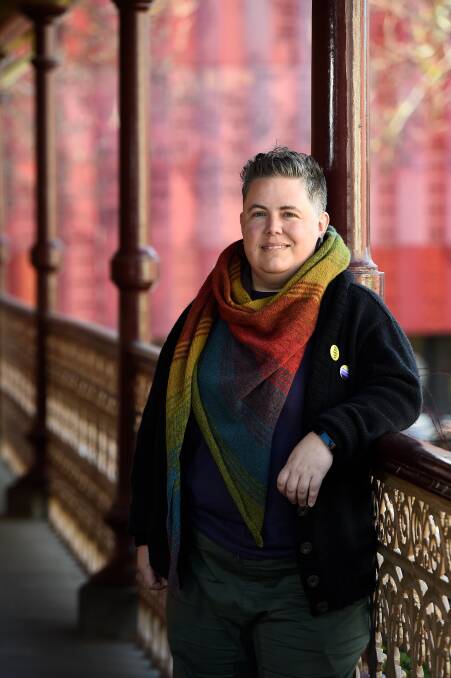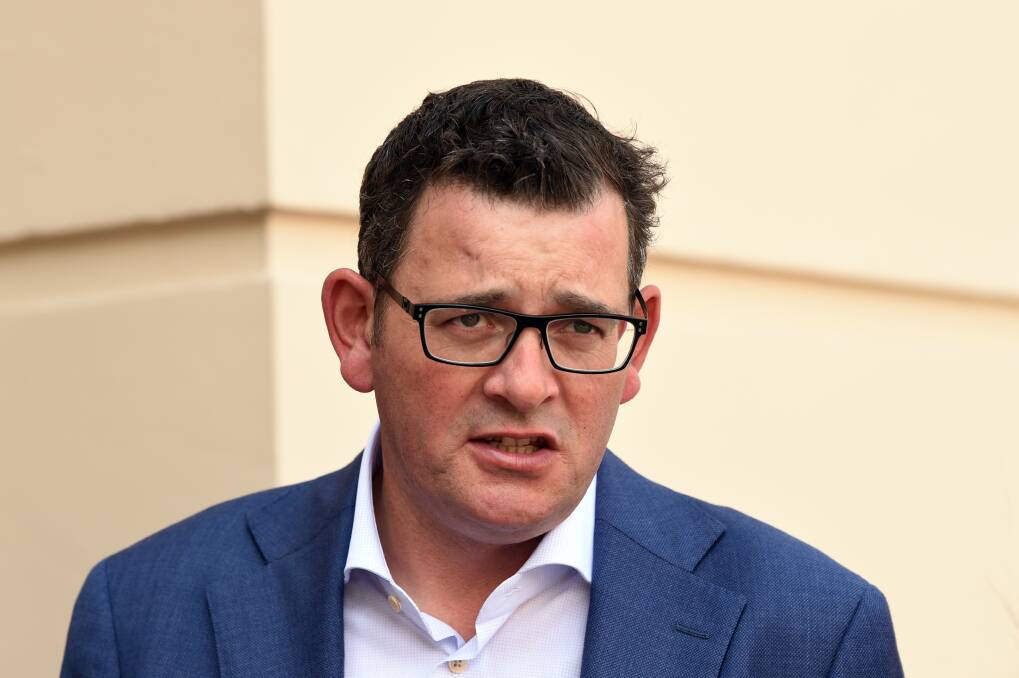
Gender diverse, trans and intersex Victorians who wish to alter the sex listed on their birth certificates will soon be able to do so without surgery, if the state government votes in favour of amending an out-of-date legal requirement.
Subscribe now for unlimited access.
or signup to continue reading
Currently Victoria is one of the last states or territories in Australia to require an individual wishing to change the gender listed on their birth certificate to undergo expensive and invasive gender affirmation surgery, meaning the removal of reproductive organs, before a change can be made.
Last week, the Victorian government made a move to throw out the extreme requirement, when it introduced the Births, Deaths and Marriages Registration Amendment Bill 2019 to Parliament. The bill was first introduced to Parliament in 2016 but did not pass.
The changes will mean applicants can self-nominate a sex or other gender diverse or non-binary descriptor of their own choice on their birth certificate, which many people use for identification purposes.
If passed, children will also be able to apply to alter the gender listed on their birth certificate, with parental support and a statement of support from a health professional.
For Ballarat's Alex Bayley, the change to the bill is a fundamental step for the gender diverse community.
Mx Bayley, who identifies as non-binary, said the proposed change would mean evening up the scales, given that the federal government already supports a person's affirmed gender on passports and medicare cards and the state government already supports it on driver's licenses, with a letter from a doctor.
In order to change the listed gender on a birth certificate, a person would need to sign a legal document, witnessed by a person who has known the applicant for more than 12 months.
The main benefit, according to Mx Bayley, is that the change would allow for the removal of a birth name from the certificate entirely.

"So if you do a gender change birth certificate it won't show your previous gender, or your name, it will just look like it's always been that way," they said. "I'm really looking forward to getting my old name off my birth certificate."
ALEX'S STORY
Mx Bayley was born female but has not used their birth name since childhood, after which they were always referred to as or spoken to with a nickname.
This was fine until Mx Bayley went to work at Google in the United States in 2011. It was just prior to the company launching its Google Plus platform - its attempt at overthrowing Facebook - and the way it was designed meant that people had to use the name listed on their legal identification on their profile.
Mx Bayley had been using the same name for 20 years and was suddenly being forced to use their birth name - it was deeply upsetting. Eventually, for a number of reasons, Mx Bayley quit the job at Google.
"I realised, in the wake of it all, how much it had upset me and that I was really uncomfortable with my birth name and really didn't want to use it.
"I had seldom been forced to - sometimes it was on paperwork but all of my friends knew me by and all my social media was under another name.
"So when I moved back to Australia, I went down to Births, Deaths and Marriages and changed my name, but that old name still lurks on the back of the certificate, so people still see it if I need to use it."
GENDER EXPLAINED
When a person doesn't identify with a particular gender, meaning they are non-binary, going about life in the community can be difficult - from choosing a doctor, hairdresser and even shopping for clothes, where most items are designed for either males or females.
"I have to make choices every day as to whether I have to roll my eyes and tick a gender that isn't mine or if i'm going to complain about it. If it's a paper form I often add a little check box but sometimes that gets ignored," Mx Bayley said.
For me, I'm both in between and both and either gender. Sometimes I feel one way, sometimes I feel another. Sometimes I don't feel either way. Sometimes I just go 'oh gender, do we have to?
- Alex Bayley
In western society, Mx Bayley said, there are only two genders, though people have different chromosomal makeups, physical characteristics and hormone levels.
"As we grow up in our culture we are taught what it means to be male or female. If we are female we are taught to like pink, princesses, soft things and to be quiet, polite and accommodating. We should like boys and want to marry a man, have children and be maternal. If we are brought up as a boy, we are taught to be rough and tumble, assertive, aggressive, and not to show our emotions.

"Not everybody is comfortable with those roles and for some people that means that they feel that society's expectations are wrong and they want to break them. But for some people, on a deep level, they feel the entire system doesn't fit them."
Non-binary is nothing new. Many cultures - India, native America, Aboriginal Australia and Pacific Islanders to name a few - have long recognised non-binary genders.
"But our culture is very binary - very black and white. There's not a lot of room for nuance in some of our western regions," Mx Bayley said.
IMPACTS
"Every time [LGBTQI+ issues] come up in Parliament it's a debate over whether our lives are valid and whether we deserve to be the people we are and that's extremely painful to witness, as if we're just political pawns to be argued over."
Mx Bayley said the issue of gender was a matter of safety for a lot of the community and was needed for identification purposes for everything from employment to a gym membership.
"I don't mind people knowing I was assigned female at birth but for trans people it can be really dangerous for them to have that known. They could face violence. I know people who have faced violence for being trans living in Ballarat."
The more legal recognition we get, the safer we are. It's enormously important to our community to have the recognition from the government that our gender is legitimate and deserves to be recognised.
- Alex Bayley
Mx Bayley said people in the LGBTQI+ community, particularly transgender people, had higher rates of depression, anxiety and suicide, not because of their identity, but because of stigma and discrimination.
"The people who are most likely to experience violence are the people who are marginalised in other ways as well; young people who don't have options to support themselves, people in aged care often experience misgendering and violence in relation to their gender, people of colour, people from religious communities that aren't accepting, people with disabilities - particularly intellectual - have a lot of trouble affirming their gender and having it respected.
"So when we see transgender people who are put up as role models and successful trans people - that's great - but it doesn't represent everybody's experience."

"There is an annual trans day of remembrance where we mourn the people who have been killed for their gender and the list gets longer every year."
Attorney General Jill Hennessy said it was important for people to have a birth certificate that reflected their true identity.
"The current surgery requirement sends a painful and false message that there is something wrong with being trans, gender diverse or intersex that needs to be 'fixed' - that's why we're removing this cruel and unfair barrier," she said.
If you have been affected by this story, contact Lifeline on 13 11 14 or ReachOut on 1800 184 527.













